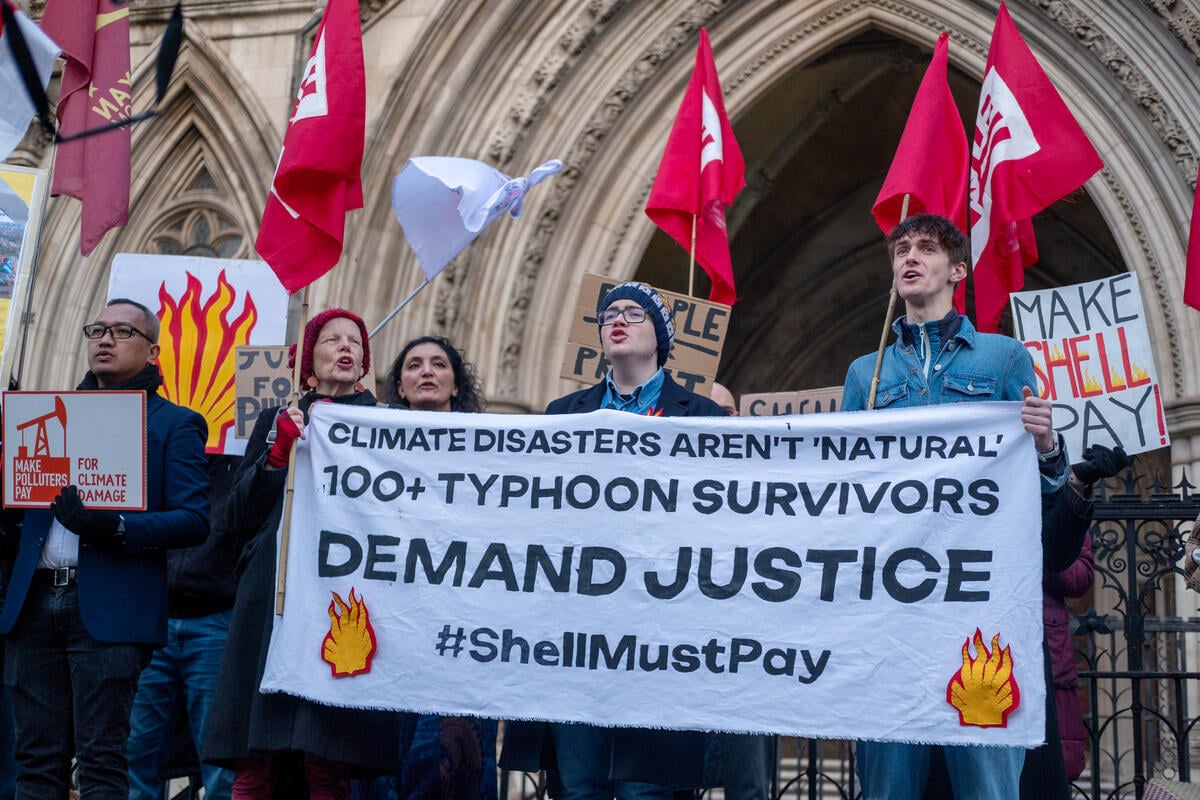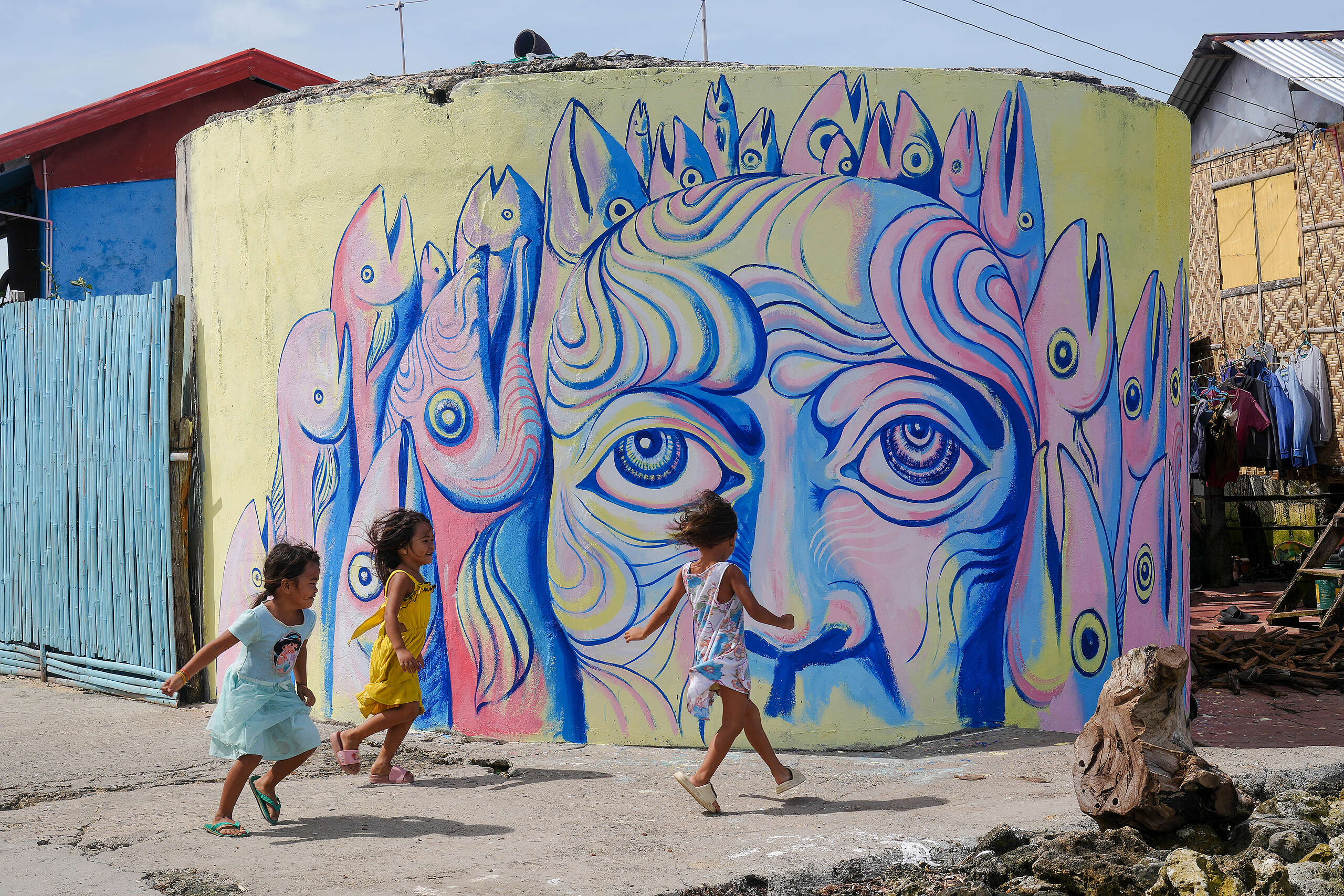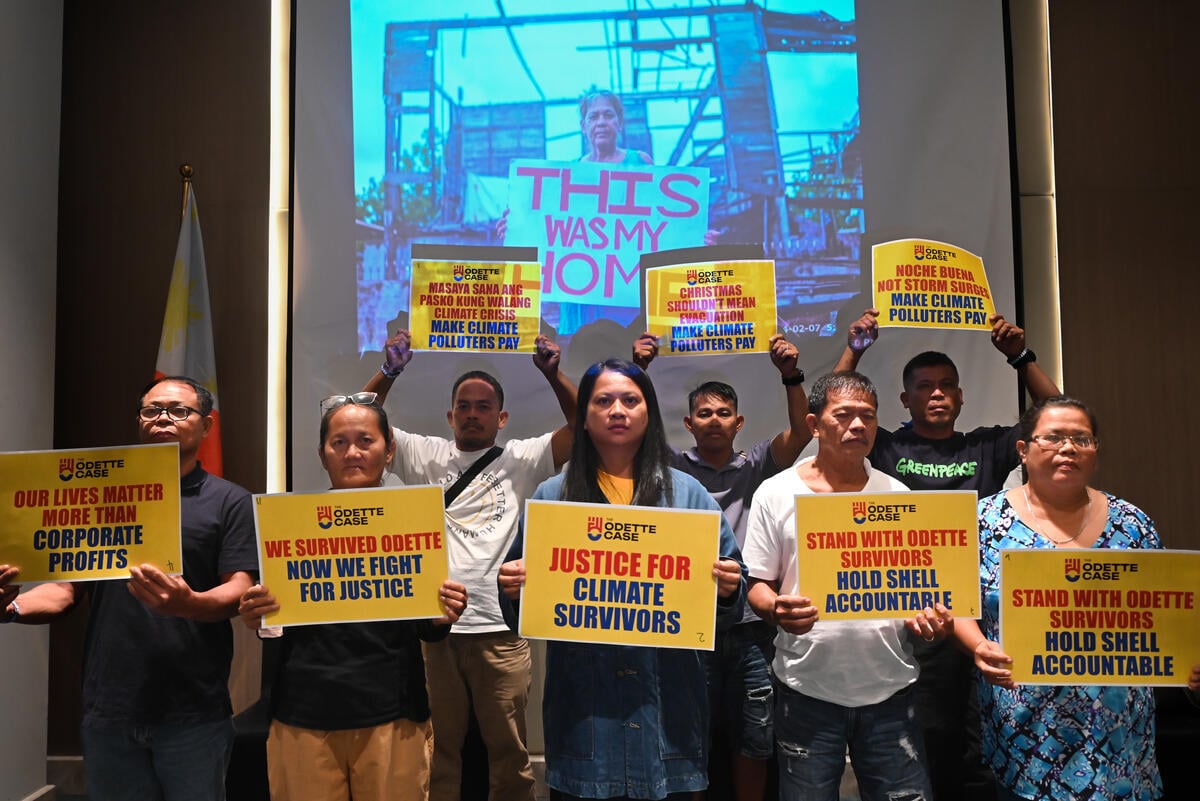Belem, Brazil / Quezon City, 25 November 2025 – What started with strong hope and promise ended without actionable roadmaps to the burning of fossil fuels,1 as geopolitical divisions again showcased the disconnection with people calling for COP30 climate action. For Greenpeace Philippines, this global failure is alarming and detrimental to Filipino communities who are still grappling with the devastating aftermath of Super Typhoon Uwan and Typhoon Tino.2
Speaking from the Philippines, Virginia Benosa-Llorin, Senior Climate Campaigner said: “The outcomes of COP 30 is a blow to communities across the globe and in countries like the Philippines which are facing the brunt of extreme climate impacts. There was no commitment from developed countries for loss and damage financing that actually measured up to the scale of what communities actually need. The COP itself was overshadowed by the sinister presence of hundreds of fossil fuel lobbyists who maneuvered an outcome devoid of a roadmap for a much needed fossil fuel phase out.”
“The Philippine government gets failing marks for this round of talks for failing to champion the cause of Filipino communities. Aside from its glaring silence on the fossil fuel phase out roadmap–a call supported by no less than 83 countries, we had hoped to hear a louder voice from the administration, host of the Board of the Fund for Responding to Loss and Damage, calling for more money on the table for communities in the frontlines.
“We’ve seen how community power, acting in solidarity, is standing up to confront the fossil fuel industry. Greenpeace Philippines continues to call upon the Marcos Jr administration to heed these calls, stand on the right side of history, and champion communities as they confront climate culprits.”
Just a month ago, 67 Filipino claimants from various communities across Visayas announced3 that they will be suing the British oil giant Shell for its role in driving the climate crisis. The legal action is based on research that found that human-caused climate change more than doubled the likelihood of an extreme weather event like Typhoon Odette. One of the claimants, Trixy Elle, flew to Brazil for COP30 to share their story and inspire courageous action against destructive corporations.
“We, in the small islands, contribute very little emission, very little pollution. But we pay the highest price,” said Elle while personally recounting the horrors of Odette during COP30. “How many [more] lives do we have to sacrifice? We don’t have to be scientists to feel that the climate is changing. And if we, small people in my community, did this big action, how much [more] should our government?
In Belem, Jasper Inventor, Greenpeace International Deputy Programme Director said: “COP30 started with a bang of ambition but ended with a whimper of disappointment. This was the moment to move from negotiations to implementation – and it slipped. The outcome failed to match the urgency demanded. The 1.5°C limit is not just under threat, it’s almost gone. It’s this reality that exposes the hypocrisy of inaction of COP after COP after COP.” .
“COP30 didn’t deliver ambition on the 3Fs – fossil fuels, finance and forests. No agreed pathway to phase out fossil fuels, no concrete plan to protect forests and no meaningful step-up in climate finance. But the millions globally and the tens of thousands on Belém streets show that hope lives outside the conference walls as communities continue to resist and rise up for our people and our planet.”
Tracy Carty, Greenpeace International Climate Politics Expert said: “At a moment when the world needs bold urgent action on emissions, this COP30 outcome feels like we’re treading water in a rip tide. These negotiations were derailed by inadequate climate finance, weak leadership from G20 nations – particularly developed ones – and the heavy hand of fossil fuel interests. The fossil fuel industry managed to dodge a phase out roadmap, but COP30 saw more countries than ever backing it, and made clear that the momentum and pressure is rising,” .
“After two weeks of fierce negotiations and calls for a robust adaptation finance goal to deal with escalating climate impacts, developed countries only agreed to a pathetically weak target. COP30 did little to advance climate finance overall or push developed countries to commit public funding for the years ahead. Developed countries again kept their wallets shut despite the fact trillions in public finance could be unlocked by taxing the biggest fossil fuel and super-rich polluters. That would be climate finance in action.”
Note to the editor:
[1] Climate, forest protection roadmaps slashed from formal COP30 outcome as people demand change
[2] Uwan damages surged 30% due to climate change—report
[3] Filipino communities to sue Shell for damages linked to Super Typhoon Odette
For more information, contact:
James Relativo, Greenpeace Communications Campaigner
[email protected] | +63 919 069 3424 (SMART) | +63 960 480 0297 (Viber & WhatsApp)



